ADVANCE WOMEN & GIRLS
Leading, Learning and Lending during COVID-19
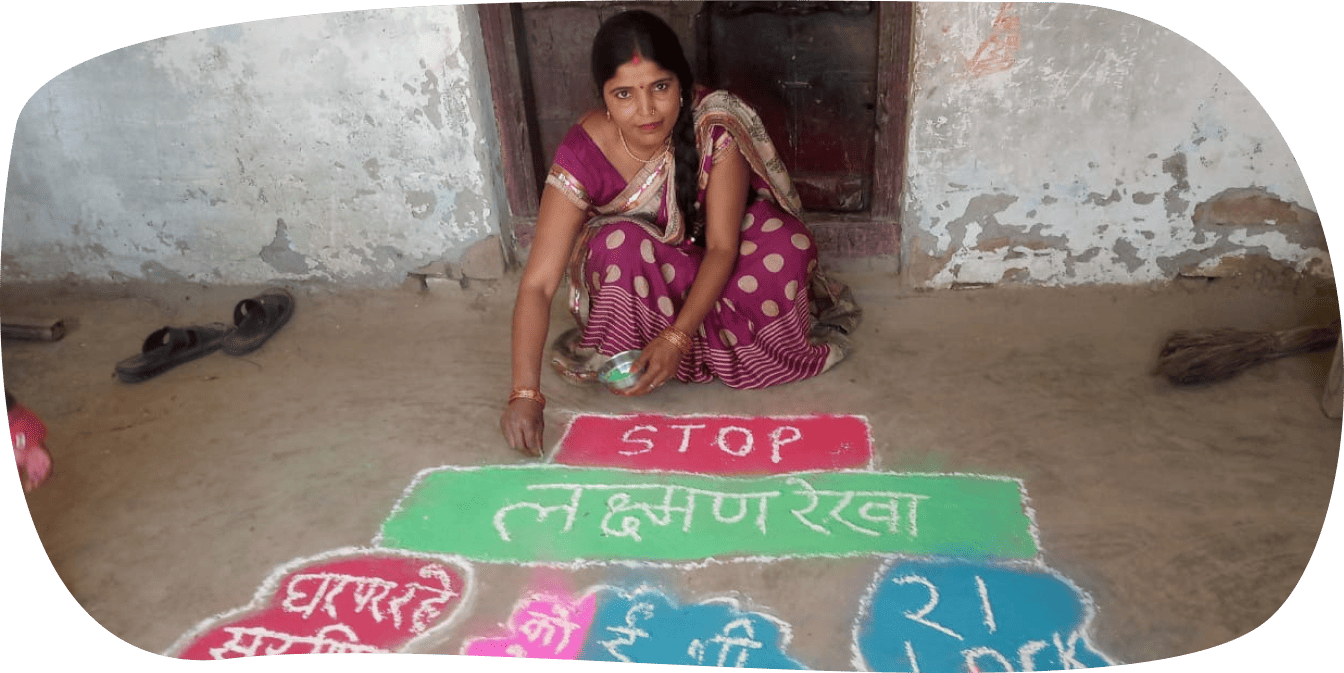
While Women Empowered (WE), a program of PCI, a Global Communities Partner, guides members on how to realize their financial goals through savings, loans and investments, it also equips women to lead their homes and communities through times of crisis.
As a result, when the COVID-19 pandemic first hit last spring, WE groups around the world were among the first to mobilize in response to the needs of their members, families and communities.
"Being a member of a WE group has always meant having access to a network of support. Members not only receive help and encouragement from each other in times of need but also actively reach out to support those outside of their group," said Mabel Bejarano, Technical Adviser to Savings Groups and Women's Empowerment for PCI. "This current crisis has been a clear example of this. Groups have, by their own initiative, demonstrated the power of unity, compassion and care for their own communities. In some cases, despite the humble conditions that participants live in, women have been able to look after the most affected by the pandemic and its economic impact."
During the initial stages of lockdown, PCI moved quickly to provide guidance to WE groups on how to adapt their meetings and stay safely connected. Recognizing the immediate reach of these close-knit networks, especially in rural areas, program staff used virtual communication to share important COVID-19 prevention measures, government requirements and emergency assistance numbers with WE facilitators. WE group members then served as key sources for other people in their communities to learn how to stay healthy and safe.
Guatemala
In the dry corridor of western Guatemala, WE groups found innovative ways to earn money and provide their families and communities with access to fresh, nutritious food during the crisis. Prior to the onset of COVID-19, PCI trained WE members on new agricultural practices and technologies, including the production of oyster mushrooms. Given the increased cost of food and limited access to markets during the pandemic, the product has proven to be a viable source of nutrition and income.
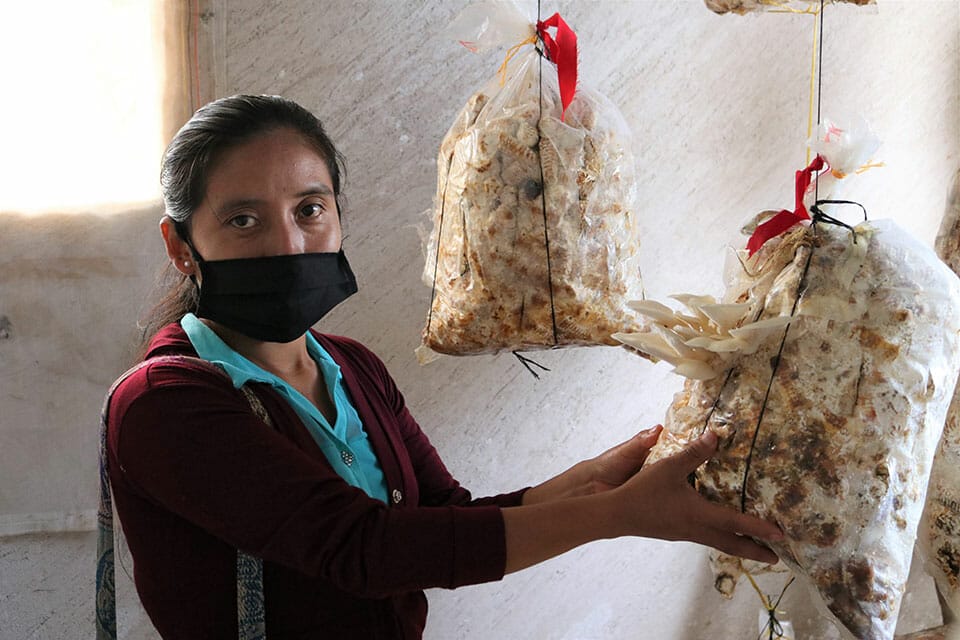
Photo by PCI/Guatemala Staff
"Mushroom production has been a food alternative for our community given the current circumstances, as there is almost no other nutritious food available," said Ana Torres, one of the WE group participants. "I feel very happy to be part of this group and to have learned a way to get ahead."
In San Antonio, a neighborhood in the Mixco Municipality of Guatemala, one WE group worked with the local community government committee to set up a Grocery Collection Center for families facing economic hardship and food insecurity due to COVID-19.
"At least with a bag of food they feel satisfied. They feel the help. They feel supported, and they don't feel alone," said Alma Ulario, a WE group member. "This is something we have learned… to help others."
Tanzania
From the start of the pandemic, health experts have emphasized hand-washing as one of the most effective ways to slow the spread of COVID-19. Yet, billions of people do not have access to clean water, much less consistent access to soap. To help fill this gap for local schoolchildren and families in Tanzania's rural Mara Region, PCI trained 75 women - primarily from WE groups - on hand sanitizer production.
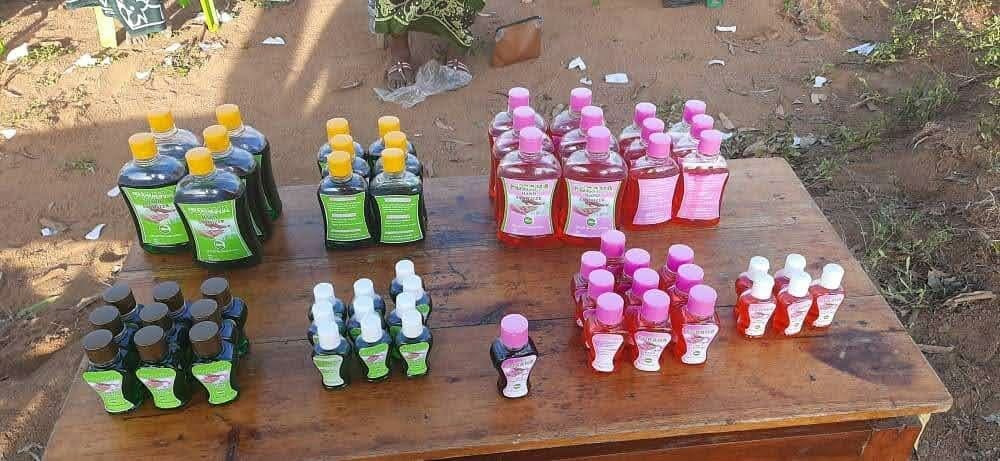
To help slow the spread of COVID-19 among schoolchildren and families in Tanzania's rural Mara Region, PCI trained 75 women - primarily from WE groups - on hand sanitizer production. Photo by PCI/Tanzania Staff
Over the course of four months, the women produced 123 liters of hand sanitizer and donated the germ-fighting agent to 123 schools that are part of PCI's school feeding program supported by the U.S. Department of Agriculture. By working closely with the regional government and the Tanzanian Small Industries Development Organization (SIDO), PCI ensured the WE groups' products adhere to local and national standards.
"Being a WE group member has helped me a lot during this challenging period of the pandemic. Through my group, I have been able to receive the right information about the disease and this has helped me and my community to remain safe as we teach each other about necessary preventive measures," said Felister Tuthuru. "Our group has gone an extra mile by starting this project. This has been an advantage to our group members as we wash hands during our group session with our own locally made liquid soap."
According to Godfrey Matumu, senior program officer at PCI/Tanzania, the first round of hand sanitizer production was meant for training and giving back to communities. Follow-up production rounds will allow WE members to continue donating to schools while also selling their products to communities across the region. The WE groups are currently working with SIDO to assess the production, packaging and marketing procedures as a means of getting the hand sanitizer to local markets.
Being a WE group member has helped me a lot during this challenging period of the pandemic. Through my group, I have been able to receive the right information about the disease and this has helped me and my community to remain safe as we teach each other about necessary preventive measures.
Felister Tuthuru
WE group member, Tanzania
Nicaragua
In Nicaragua, where schools have remained open during the pandemic, WE groups have stepped up in significant ways to help teachers, school administrators and students stay healthy and safe. The schools are located in some of the most underserved communities in Jinotega and the South Caribbean Coast of Nicaragua.
WE group members have worked alongside health volunteers and local health center staff to give presentations to their communities on COVID-19 prevention measures. In addition to demonstrating proper hand-washing techniques to students, they also installed hand-washing stations in high-traffic areas and communal spots.
At the beginning of the pandemic, when masks became expensive and scarce in the community, some WE group members began sewing and selling masks to ensure schoolchildren, teachers and the general population had access to the protective covers. Aside from regular donations of food and other materials to support school meals and infrastructure improvements, WE groups have also made financial contributions to buy hand sanitizer, soap and water filters. Several members volunteer to do deep cleanings at the schools once or twice per week as well.
"Being part of a WE group helped us stay positive and take the needed precautions," shared members of the El Tigre group from Pantasma, Nicaragua. "Although we continue to meet, we incorporated [hygiene] habits that perhaps should have been part of our daily lives but we did not follow well, such as hand-washing, the use of a mask and physical distancing. This became a habit during group activities, and we also shared these practices with others in our families."
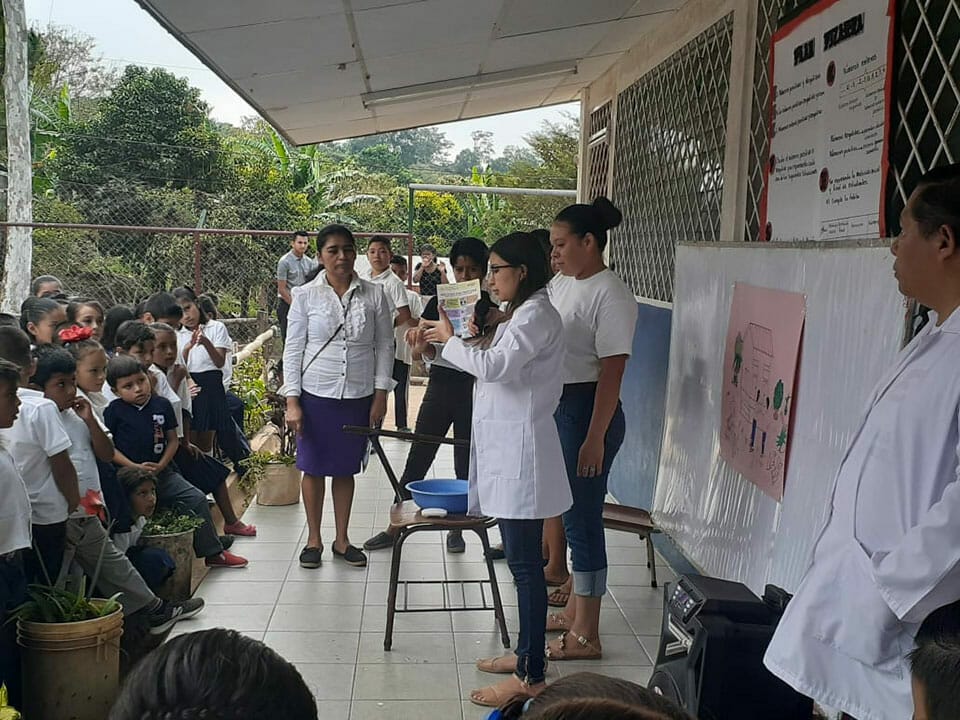
India
Women and girls, especially the most marginalized, are among those who suffer most during public health emergencies. From the heightened risk of domestic violence and exploitation to increased responsibilities caring for children and sick family members, the pandemic has only exacerbated existing challenges to their safety and well-being.
Recognizing this, PCI conducted tele-sessions with women's self-help group members in rural Jharkhand, India, to discuss these vulnerabilities, provide support and address misinformation about the coronavirus.
0
self-help group members were reached with health information and support.
Topics included everything from the role of mothers during lockdown and how to support adolescent girls with nutrition and menstrual hygiene management to COVID-19 safety measures. Each phone session was followed by a weekly quiz to motivate participants to remain connected with the material. Project staff also made follow-up calls to find out if the women shared information with other self-help group members.
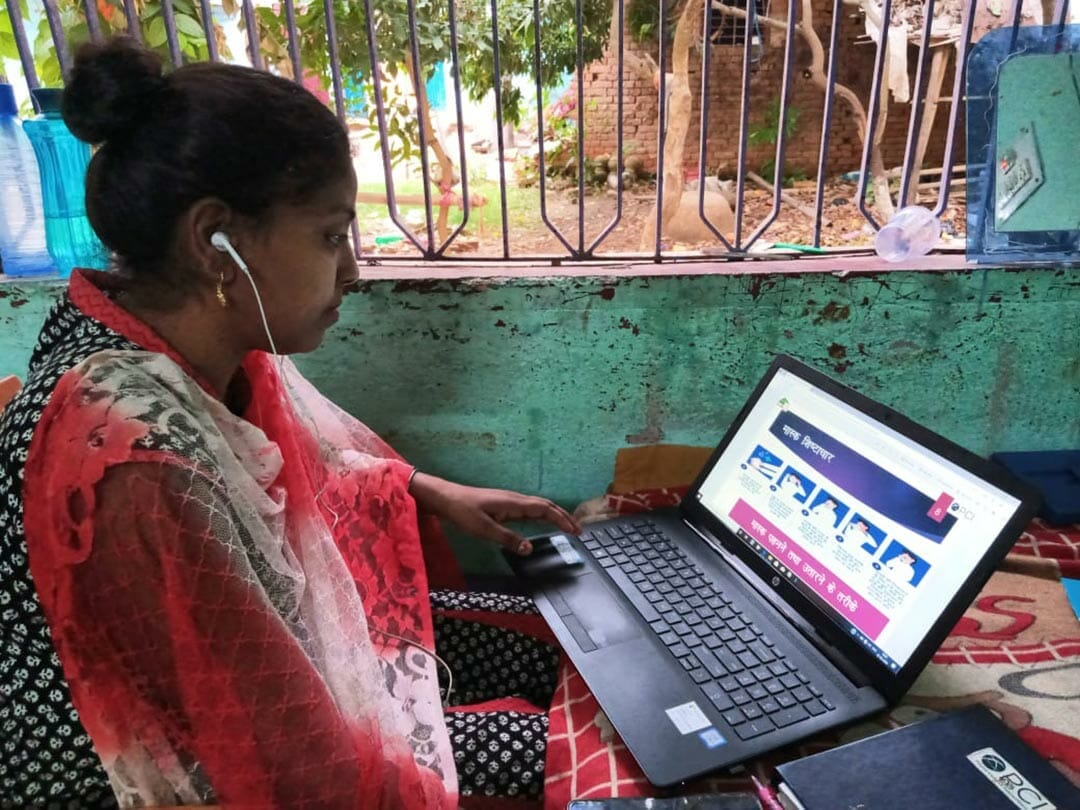
Before women's self-help groups and village organizations resumed meeting again, PCI/India staff ensured members and participants understood COVID-19 safety guidelines through phone-based sessions. During lockdown, staff also conducted remote check-ins with women to better understand how the pandemic has impacted their day-to-day lives and households. Photo by PCI/India Staff
"Women felt good that someone was checking about them and their health rather than checking on work accomplishments," said Sushmita Mukherjee, PCI/India's Director of Gender & Adolescent Girls. "They were able to talk and discuss about their fears, apprehensions and other doubts about COVID-19. Now, they know for any kind of counseling or discussions, they can call the PCI team."
From March to October 2020, three block mobilizers reached out to nearly 300 self-help group members every month to conduct tele-sessions. In turn, these women shared what they learned with more than 14,590 self-help group members.
"We want the learning and the courage gained by these women to be rightly shaped up so that they can help the girls and daughters in their communities and families to realize their aspirations and decide about their future course of life beyond COVID-19," Mukherjee said. "PCI is working towards enabling these women to not only realize the need for rejecting restrictive patriarchal norms but also establish the progressive alternates for themselves and their daughters in a collective way."
Story by Maureen Simpson

